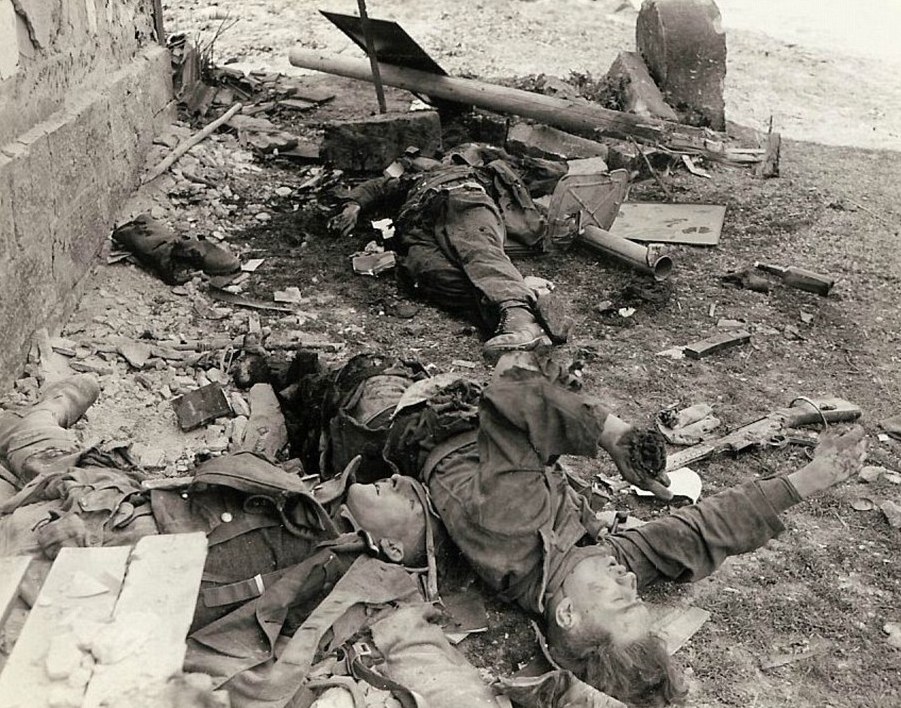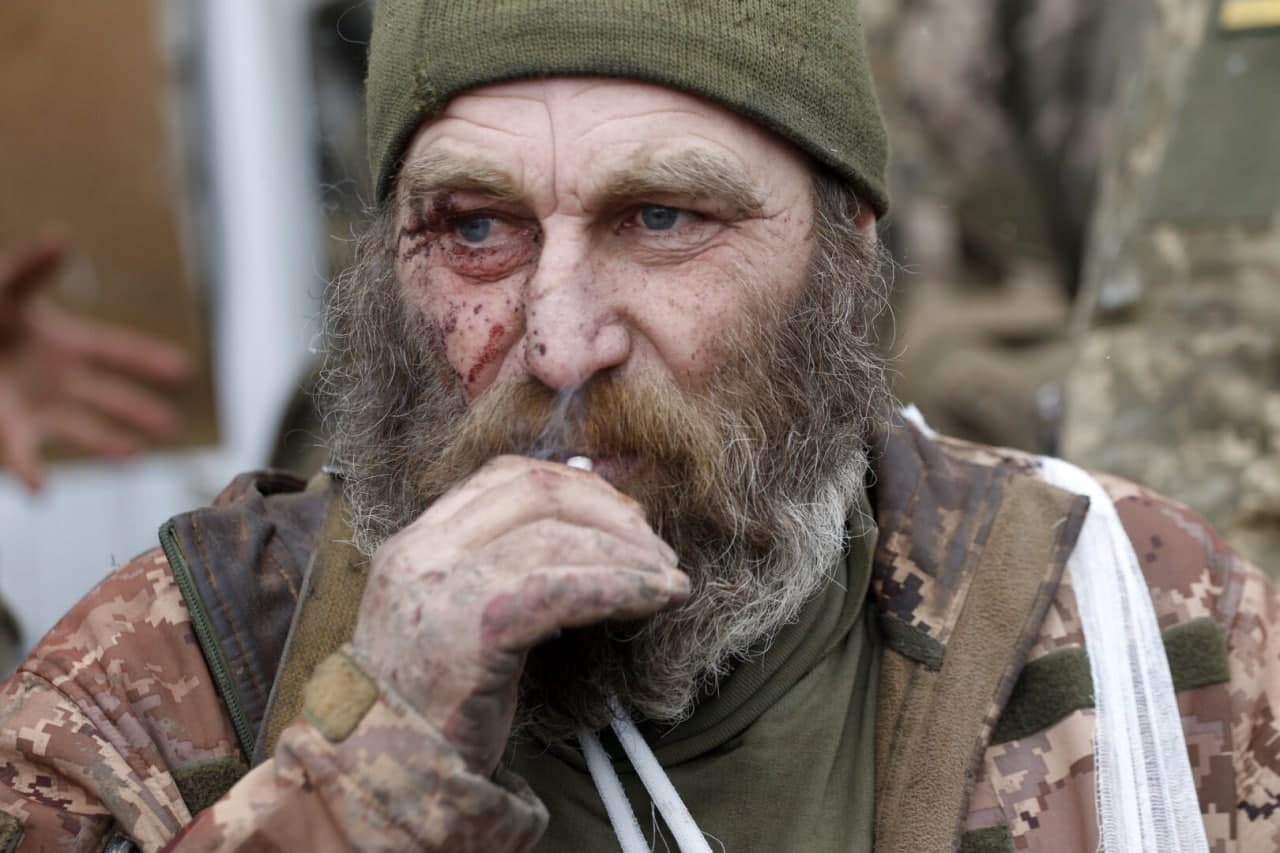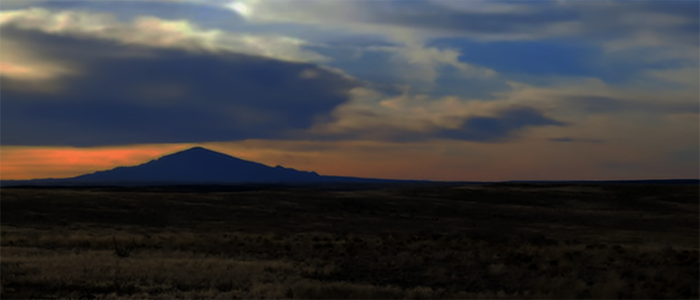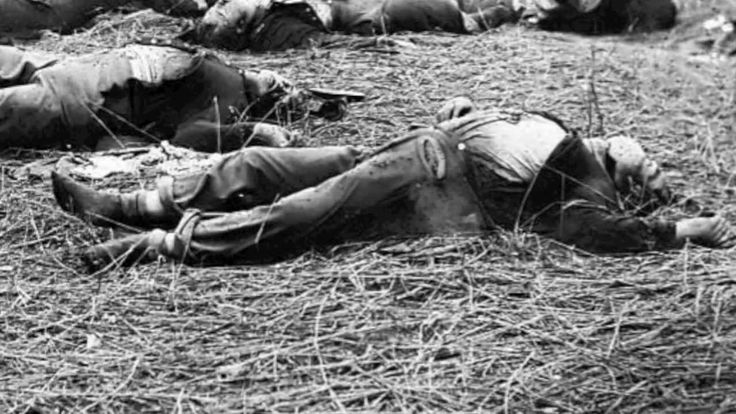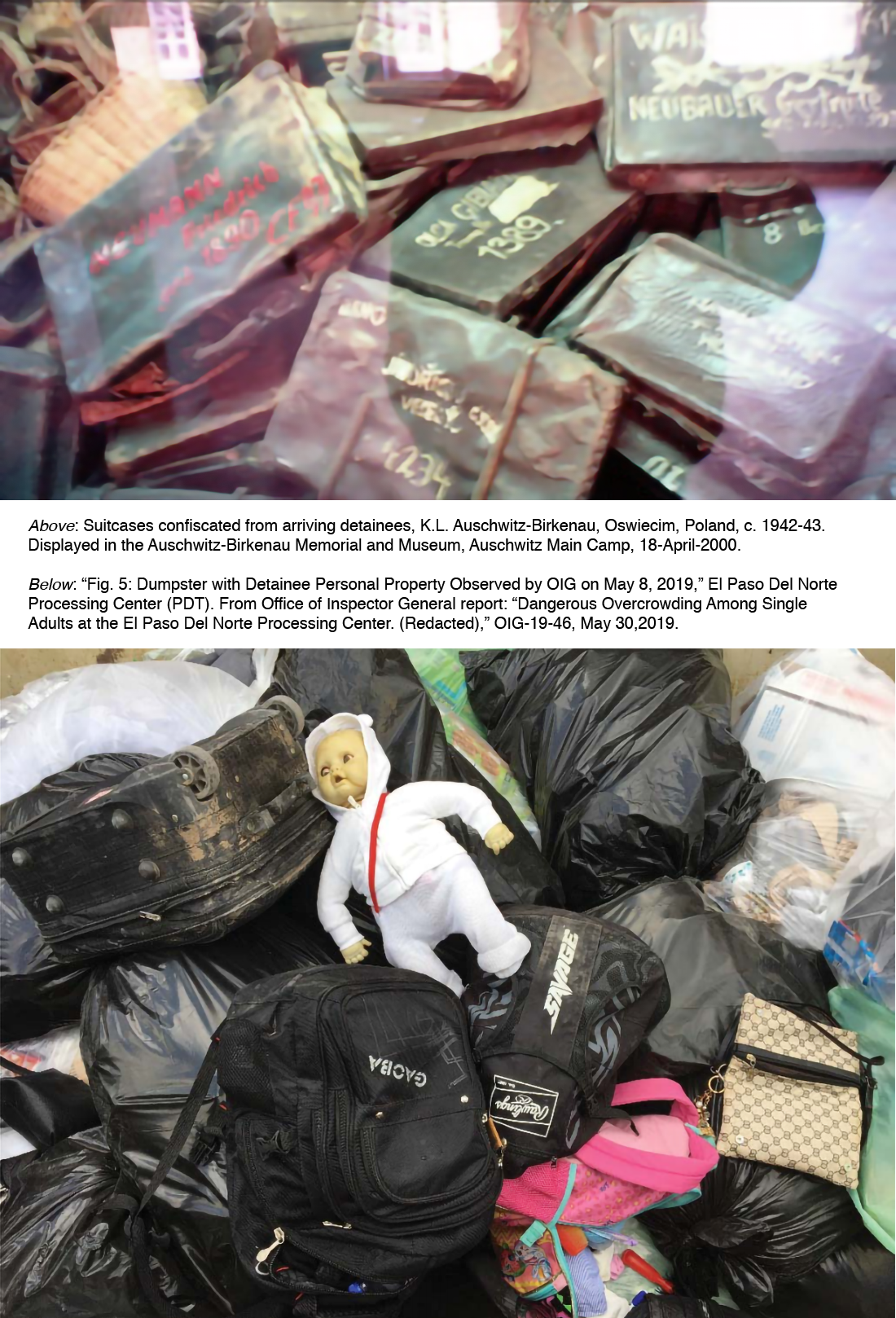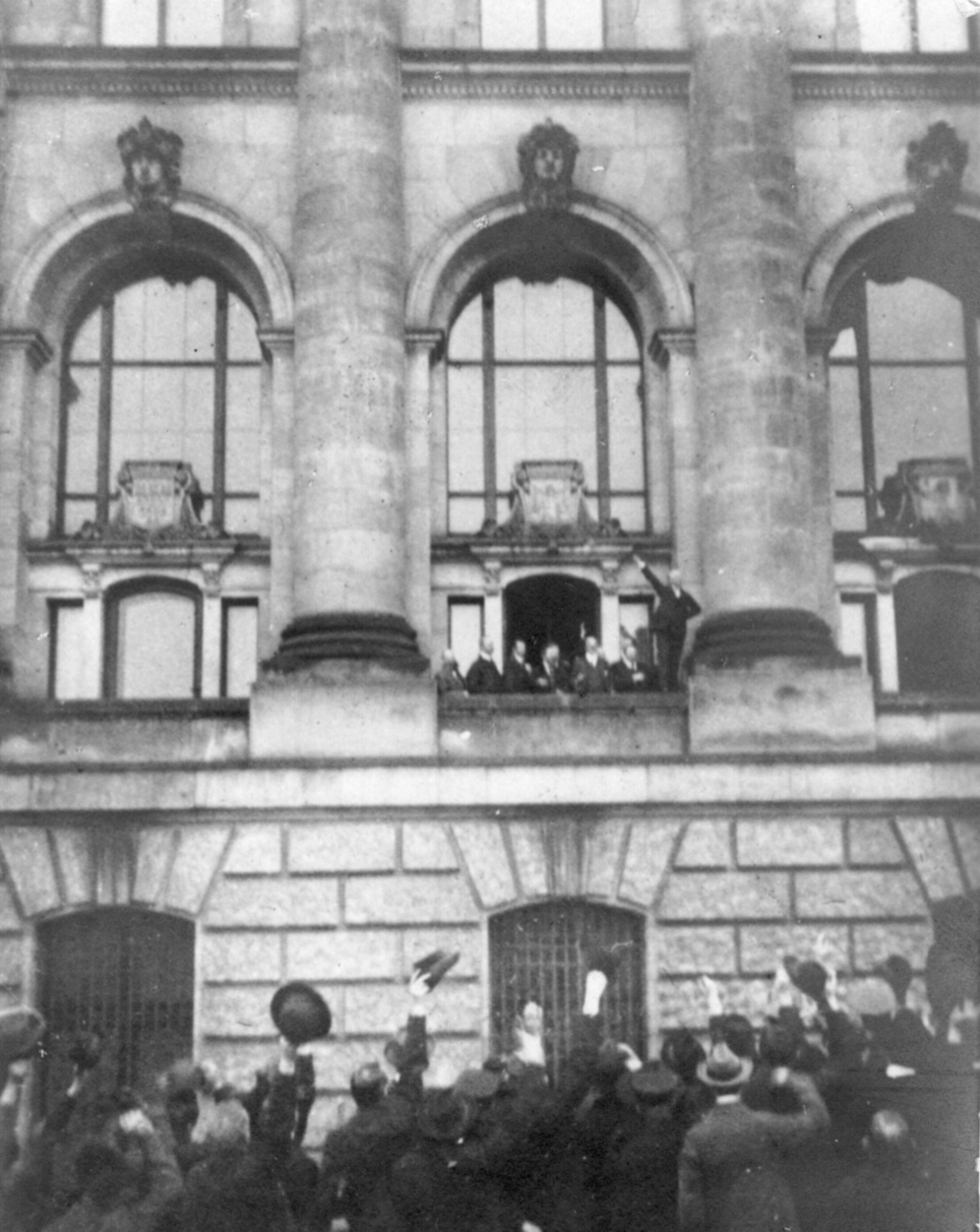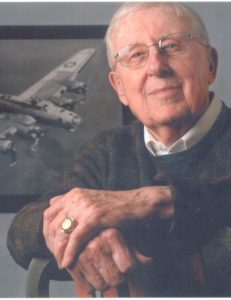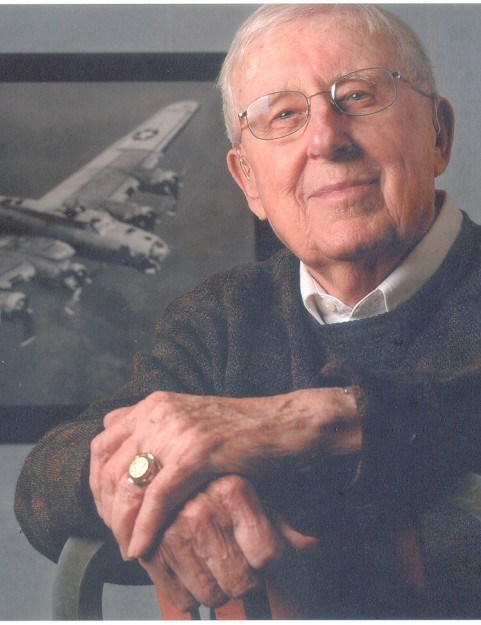If we are to have another contest in the near future of our national existence, I predict that the dividing line will not be Mason and Dixon's but between patriotism and intelligence on the one side, and superstition, ambition and ignorance on the other.
Category: Grief
An 80-year-old Letter
Beginning of the End Day—Year 80
"Instead of "Thank you for your service," try, "We're sorry you had to expend your blood, sweat, tears and toil to clean up our monumental failings." Every time you meet one of the dwindling numbers of WWII veterans (and those of all the other magnificent little American wars we've fallen into), keep your mouth shut and your brain focused on peace. These "Greatest Generation" folks answered the bell and won the fight. We might not be as blessed next time."
Faces of War II
A member of the Honour Guard stands next to a coffin with the body of Ukrainian Armed Forces member Valerii, who was killed during Russia's invasion of Ukraine, during a funeral ceremony in Kyiv, Ukraine, March 8, 2022.
Whatta Rush
It’s always fun to get a phone call during morning meeting from your oncologist, who you just met yesterday, and who says, “You know last night when we thought a few zaps of radiation of your cancerous lesion would be the way to go? “Well, after more consultations with other oncologists, it’s now the consensus...
My Cancer Journey Begins
I called Monday morning and the news was what I thought—but with an unexpected twist
I have a malignant carcinoma on my toe…type is Kaposi’s Sarcoma.
It was a Cold and Boring Night
"To me, as a gay boy, hugging another boy was perfectly natural. It always has been, it always will be. I always felt instinctively somehow that people would disapprove and say I was naughty. And I always felt instinctively that I knew what I wanted and I was going to have it and all those disapproving people could just go suck eggs and pound sand. Even at the height of the worst spiritual and sexual repression that Oklahoma and its churches could dole out, my inner belief has always been the same. There's nothing wrong with me. I've known who I am and what I wanted since I was at least five. And everyone else who is not onboard with that can go over Niagra Falls without a barrel."
American Civil War Casus Belli: African Negro Slavery.
Let's be clear: The war was about slavery, from first to last. And after the gun stopped firing, the war continued in multiple ways that all-too-often includes violence and murder.
What We Hath Wrought
RIP Amara Renas and all the other unknown women and men and children. May you haunt our collective memory forever.
Normandy 2019
Tragically brilliant.
Beginning of the End Day
"Instead of "Thank you for your service," try, "We're sorry you had to expend your blood, sweat, tears and toil to clean up our monumental failings." Every time you meet one of the dwindling numbers of WWII veterans (and those of all the other magnificent little American wars we've fallen into), keep your mouth shut and your brain focused on peace. These "Greatest Generation" folks answered the bell and won the fight. We might not be as blessed next time."
Corporate Power
"Many states whose sovereignty is threatened are now finally waking up to the danger. But is it perhaps already too late to do anything about the seemingly over-mighty corporations?"
Capital Destroys All It Touches
"What's our death toll up to in this week's boutique pay lots of money and die fashionably sweepstakes? 19?"
Where Are the Bodies? We Have an App for That.
"The information presented is stark and perhaps unsettling."
No Slope, No False Equivalency. Just the Same. Damn. Thing.
Immoral, indecent, inhumane. ... We are running concentration camps and human beings are dying.
Another Anniversary
It’s been TWELVE (12)!!! years??! Holy cow. In spite of all the special dogs (Feargal, Fergus, Fred, Roux, Sascha, Bosco, Goose, Tessa and now Charlie) we’ve had since Bayley crossed the Rainbow Bridge, the first dog who enters your life always leaves the most special imprint on your heart. And Bayley was indeed a special...
11:00 | 11-November-1918
100 years ago today, at the eleventh hour of the eleventh day of the eleventh month of 1918, the guns along the 440-mile line stretching from Switzerland to the North Sea fell silent. The war started 1 August 1914 just as German Chancellor Otto von Bismark once famously predicted around 1884, by "some damned fool thing in the Balkans;" in this case, the assassination of Austrian Archduke Franz Ferdinand in Sarajevo, a city of agony in the 20th century). But on 11 November 1918, it was finally "all quiet on the Western Front."
9 November: Schicksalstag
In the next few days, there will be much remembrance of the events of 100 years ago—the end of World War I. Not as much in the U.S., where World War I is like the Korean War, a largely forgotten conflict, even though 115,516 Americans died between 1917-1918, along with over 320,000 sickened, most in the influenza epidemic of 1918.
Tragically Brilliant
Steve Bell’s ‘toons for The Guardian are always brilliant. But «in this one», he’s surpassed himself.
Remembering the Past
Remembering Bill Schock on his 100th birthday … and the 52nd anniversary of Braniff 250 in Falls City. Also … feeling old from … time flying and stuff. Since the AM2431 crash in Durango a few days ago appears to be from weather-related causes, never forgetting the lessons of BN250, as well as CO426, OZ809,...
For Bill
Back in 2014, I included a chapter in my book detailing Bill Schock's war experiences as they related to his reporting on the crash of Braniff International flight 250 in 1966.
A Final “Hangin’ Out the Warsh”
«This is Bill’s final column» out of countless ones he wrote over 71 years for the Falls City Journal. With this column, he said farewell; the Journal has been sold and moved to a much smaller space in downtown Falls City which it had occupied until 1950. It’s all extremely symbolic of the state of...
More Grief
This is kind of like how I feel about my (possibly four) upcoming surgeries: I don’t want to do this, but I have to, and I hate it. Received a kind e-mail yesterday telling me of the death of Bill Schock of Falls City, NE, on Thursday evening, six weeks short of his 100th birthday....
Dean Allen, RIP (Jan. 2018)
Because so much has been messed up and unstuck during the first half of this god-awful year, I just discovered the other day that Dean Allen, the creator of Textpattern, which powers this site, and of TextDrive, which used to host this site until Joyent destroyed it, and of «Textism» and Textile and Cardigan Industries...
Shooting Up the Waffle House, Naked
In all this pouring (and pouring and pouring) rain, how difficult is it to find a naked man running around after he assaulted a Nashville Waffle House at 3 a.m. with an AR-15 and killed four people? And this after he was arrested last July by the Secret Service for being in a restricted area...
Memories of Bosco, Part 2
Here is a series of pics of Bosco (and Sascha) from the moment we first saw them in October 2015 as Belly Rubs… Posted by Steve Pollock on Thursday, March 22, 2018
Memories of Bosco, Part 1
Some pics of a happy/sleepy Bosco. Always such a happy boy, until that last night. Farewell, Boscketty. Lordy do we miss ya. Posted by Steve Pollock on Thursday, March 22, 2018
Farewell, Boscketty Bagel.
Our beloved Bosco is calling time and can now see the Rainbow Bridge and the finish line of a life well lived and well… Posted by Steve Pollock on Tuesday, March 20, 2018
We Are … Human Shields
This is our reality … (another in a series): We are human shields. Posted by Steve Pollock on Tuesday, February 20, 2018
This is Our Reality Now
This is our reality … (another in a series): Posted by Steve Pollock on Tuesday, February 20, 2018
This is Our Reality, Teachers
[Yeah, it's long and snarky. Yes, again. Read and think or move along.] A teacher's perspective: This is our reality,… Posted by Steve Pollock on Friday, February 16, 2018
January is a Killer Month
It's the Mirror, so not exactly the greatest source, but the stats they cite are valid. We have now lost four men who… Posted by Steve Pollock on Tuesday, February 6, 2018
Pics of David
Just some pics of David Garms I happened to find easily while waiting for sleep to arrive after this truly horrible… Posted by Steve Pollock on Thursday, February 1, 2018
David's Obit
[Here’s an obit of sorts to go with the post I just added above. Writing obits is what I used to do professionally … when there’s a death in a community, the men mow the deceased’s yard and the women start gathering food. Me? I write obits. Sorry.] David Andrew Garms, 50, died the morning...
Farewell David
Frank and I are beyond sad and shocked to have to announce the death this morning of our longtime housemate David Garms. (This is not about me, and apologies there are so many “I”‘s in here, but I canNOT believe I’m writing this.) David was 50. This was an unexpected sucker punch. And so I’m...
Farewell Jerry Yellin! CAVU!
https://www.washingtonpost.com/local/obituaries/jerry-yellin-fighter-pilot-in-last-combat-mission-of-world-war-ii-dies-a… Posted by Steve Pollock on Friday, January 12, 2018
Same Here
There's this thing that has been closely guarded for going on 40 years in 2018. It's my secret. So as it hits its 40th birthday in our new year, I decided it's time to tell the world.
Rose Marie Passes
Some three hours ago, the legendary Rose Marie tweeted about opening the Flamingo Hotel in Las Vegas 71 years ago this… Posted by Steve Pollock on Thursday, December 28, 2017
American Carnage: 10-Nov-17
Peckerwoods! What we learned this week: • Comedian Louis CK and Crusading Crazy Ass Roy Moore were accepted into that venerable old boy’s club, that newly-open-to-didlers-from-outside-the-church institution, The Ancient and Venerable Order of Priests Expecting Complete, Knightly Exoneration; Rewarded With Oodles Of Dancing Students (a.k.a. “P.E.C.K.E.R.W.O.O.D.S.”) Golf and Country Club. Greeting them at the door...
Bad News
Just found out our court jester Bosco has a large, fast-growing osteosarcoma, which engulfed three ribs and is probably… Posted by Steve Pollock on Monday, November 6, 2017
Shame
Posted by Steve Pollock on Thursday, September 22, 2016
Rick Stewart Memorial Bird Feeder
Presenting the Rick Stewart Memorial Bird Feeder Tree. Rick gave me these three feeders he made last spring and I… Posted by Steve Pollock on Tuesday, March 15, 2016
That Was Rick
[An anemic attempt to define Rick, who was undefinable.]Rick Stewart, Feb. 2, 1966 – Feb. 11, 2016.Three months or… Posted by Steve Pollock on Saturday, February 13, 2016
And Then There Was Maude …
Sad news today: «Bea Arthur passed away at 86 from cancer»: ‘Beatrice Arthur, the tall, deep-voiced actress whose razor-sharp delivery of comedy lines made her a TV star in the hit shows “Maude” and “The Golden Girls” and who won a Tony Award for the musical “Mame,” died Saturday. She was 86. Arthur died peacefully...
A Eulogy for Brooksie Belle Ketchum Booth, My Grandmother (2001)
I wrote the following passages in two separate sections over two separate days. Part I – 2:00 a.m. San Francisco Time, Wednesday, Nov. 14, 2001 The call I was dreading came just ten minutes ago – an unhappy, middle-of-the-night call – word from my exhausted and grief-stricken mother that her mother’s long battle was over...


